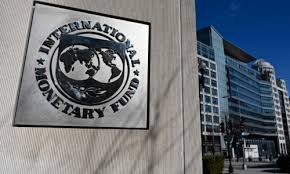Islamabad, Oct 14: The International Monetary Fund (IMF) has called on Pakistan to promptly eliminate preferential treatment, tax exemptions, and various protections for its agriculture and textile sectors. According to a report by The Dawn, the IMF claims that these practices have hindered the country’s growth potential for decades.
In its staff report on the underlying issues affecting Pakistan’s struggling economy, the IMF criticized both sectors for not only failing to contribute significantly to national revenue but also for consuming substantial public funds while remaining inefficient and uncompetitive. The IMF emphasized that as part of the recently approved USD 7 billion Extended Fund Facility (EFF), Pakistan must abandon economic practices from the past 75 years to break free from its recurring boom-bust cycles.
The report, released on October 10, highlighted that Pakistan has significantly lagged behind comparable nations, leading to stagnation that has deteriorated living standards and pushed over 40.5% of the population below the poverty line. The IMF pointed out that Pakistan has struggled to develop more sophisticated export products, with a low share of knowledge-intensive exports due to a lack of innovation. In 2022, Pakistan ranked 85th on the Economic Complexity Index, the same position it held in 2000.
The report noted that the country’s export basket is heavily weighted toward agriculture and textiles, including cotton yarn, rice, woven fabrics, beef, and leather apparel, which has limited its ability to shift resources toward more technologically advanced products. Although Pakistan does export some high-value goods, such as medicines and medical instruments, these sectors operate within a distorted economic framework.
The IMF report identified tariffs on intermediate and final goods as significant barriers to competitiveness and domestic market growth, which hinder the country’s transition to more advanced manufacturing. It stated that existing microeconomic distortions, such as public procurement of agricultural goods and fiscal incentives for low productivity sectors, have stymied reallocation efforts.
The textile sector was specifically identified as having the highest tax gap relative to its value added, benefiting from subsidies, preferential pricing on inputs, and concessional financing schemes between 2007 and 2022. The IMF emphasized the need for the government to simplify trade policies in the upcoming National Tariff Policy (2025-29) and to avoid using tariffs as a means to protect inefficient sectors, as such strategies weaken exports and inhibit participation in global value chains.
Additionally, the report cautioned against trade policies designed to promote specific domestic sectors, including export subsidies and local content requirements, which could lead to resource misallocation and potential violations of international obligations. The IMF pointed out that Pakistan’s export growth has been notably weak compared to regional peers, particularly stagnant during the 2010s.
The report also indicated that several complex goods lie within the technological reach of Pakistan’s current export basket, such as glassware, paints, chemicals, and rubber products. However, to foster the development of these new industries, the country must establish a level playing field for businesses and avoid targeted policies that favor certain sectors. The IMF stressed the importance of greater integration into global trade and easier access to imports, both as intermediate inputs for production and as final goods, to promote domestic competition. Removing fiscal incentives would help reduce resource misallocation and encourage fair pricing across firms.



